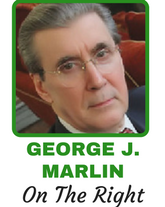Franklin Roosevelt and Harry Truman won presidential elections thanks to the loyalty of the Democratic Party’s base voters, blue-collar and working-class Americans.
In the 1950s, however, the composition of the party began to change.
The Democratic Party in America’s major cities emerged as the new home for elitist social engineers.
Searching for a new “political” hero, these newcomers settled on the liberal “egghead,” Adlai Stevenson of Illinois.
Stevenson was embraced because he had “style” and was in historian Michael Barone’s judgment, “the first leading Democratic politician to become a critic rather than a celebrator of middle class culture — the proto-type of the liberal Democrat who would judge ordinary Americans by an abstract standard and find them wanting.”
It was these leftist snobs that drove millions of working-class Democrats into the arms of Richard Nixon and Ronald Reagan.
Absent these voters, the party became dominated by public sector unions, penthouse liberals and identity driven interest groups.
The Democrats balkanization of the American electorate brought down in 2016 the Party’s self-proclaimed “Blue Wall” of states — Michigan, Pennsylvania, Ohio and Wisconsin — and gave Donald Trump the electoral college votes to put him in the White House.
Surveying the political rubble, a leading liberal scholar and professor of Humanities at Columbia University, Dr. Mark Lilla felt compelled to speak out.
The result, a well-timed book that Democrats ignore at their peril, “The Once and Future Liberal: After Identity Politics.”
Lilla is exasperated by an “ideology that for decades has prevented liberals from developing an ambitious vision of America and its future that would inspire citizens of every walk of life and in every region of the country.”
The frustrating ideology: Identity politics which he defines as a “pseudo-politics of self-regard and increasingly narrow and exclusionary self-definition….”
To prove his point, Lilla advises readers to Google the home page of the national Democratic Party.
Pressing the site’s “People” link takes one to pages tailored to appeal to 17 distinct groups and identities including: women, Hispanics, ethnic Americans, the LGBT community, Native Americans, Africa-Americans, Asian-Americans and Pacific Islanders.
This type of identity liberalism doesn’t appeal to the common good that unites a people, instead it is designed to splinter the nation.
“The paradox of identity liberalism,” Lilla writes, “is that it paralyzes the capacity to think and act in a way that would actually accomplish the things it professes to want.
It is mesmerized by symbols: achieving superficial diversity in organizations, retelling history to focus on marginal and often minuscule groups concocting inoffensive euphemisms to describe social reality, protecting young ears and eyes already accustomed to slasher films from any disturbing encounter with alternative viewpoints.”
Today it’s all about “me” and “what does my country owe me by virtue of my identity.”
Such self-righteousness narcissists have destroyed common citizenship. John F. Kennedy’s 1961 inaugural appeal, “ask not what your country can do for you, but what you can do for your country,” has been dismissed as a quaint notion of a misbegotten era.
What must be done to abate the purveyors of identity politics from further fracturing the nation?
First, Lilla calls on radical loud mouths in his party “to descend from the pulpit,” to abandon the politics of self-absorption and to prioritize “citizenship over group or personal identity.”
Lilla, as a committed liberal and I as a committed conservative, will disagree on the prescriptions that will revive and unite our country.
However, we do agree that we must promote the inherent value of citizenship which stresses what we have in common, “transcends identity attachments” and implies “we have duties because we have rights; we enjoy rights because we do our duty.”
To gain additional common ground, I also recommend my Democratic friends reaffirm sentiments expressed a long time ago by a prominent member of their party: “We believe in the moral and cultural values that most Americans share: liberty of conscience, individual responsibility, tolerance of difference, the imperative work, the need for faith, and the importance of family.… We believe that American citizenship entails responsibility as well as rights, and we mean to ask our citizens to give something back to their communities and their country.”
By the way, those words were uttered by Bill Clinton in 1991.



